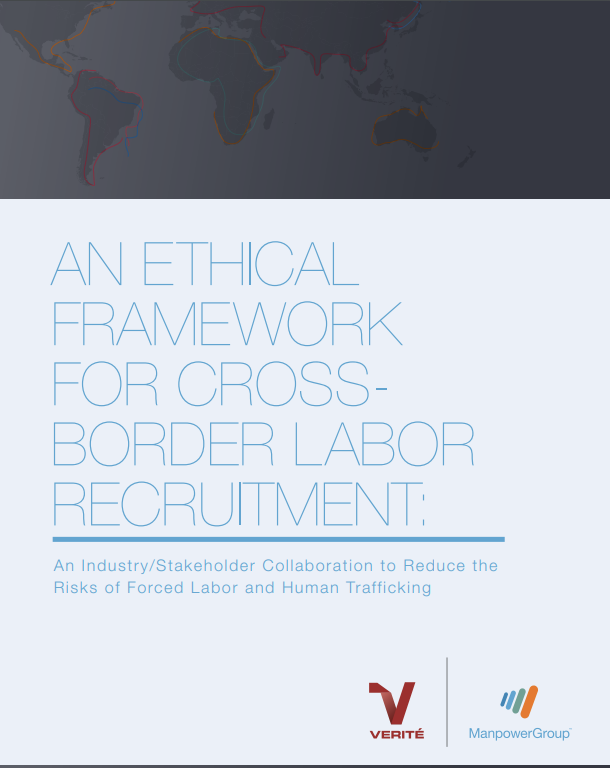The Ethical Framework for Cross Border Labor Recruitment offers a set of specific operational practices (“Standards of Ethical Practice”) for recruitment firms that operate across borders. These practices are reinforced by a Verification and Certification system to document compliance and provide essential information to third parties and potential business partners.
The standards are aligned with principles and recommendations developed by leading global organizations, governments, businesses, labor, civil society and other stakeholder coalitions. They are designed to protect against specific patterns of worker vulnerability and abuse in the current cross-border recruitment marketplace, including recruitment debt, contract fraud, exploitative hostcountry conditions, and lack of legal and financial remedies for migrants.

